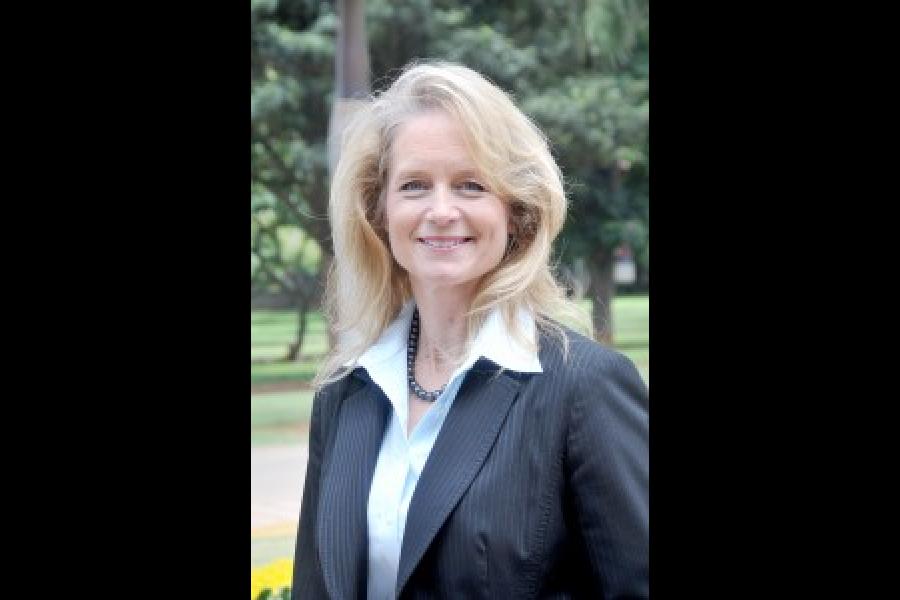"India's Healthcare Model Helps Bring Right Behaviour": Terri Bresenham, GE Healthcare
We live in times when healthcare is challenged in most geographies: In the developed world for obscenely high costs; in the developing world for pitiably inadequate coverage. So when a global executive of one of the largest conglomerates in the world says eight years from now, she wouldn’t be surprised if the world said India’s healthcare model circa 2000s foreshadowed the direction of the global healthcare, you pay good attention.
Terri Bresenham, new President and CEO of GE Healthcare India and South Asia, is passionate about healthcare. She finds the Indian market unique. But haven’t we heard that before? Yes, but according to her the uniqueness lies in the fact that Indian healthcare model brings out the best in people.
“India is the only country where consumers shop around for healthcare, where physicians and providers know their respective cost structures. This helps bring the right behaviour,” she says. (Though it's another matter that as health insurance penetration increases, shopping around will decrease and costs will escalate.)
Perhaps that’s the reason GE Healthcare is reassessing its “purpose” in India. Healthcare is not just about business, she says. “We are asking who are we solving the problems for— physicians, nurses, patients, government institutions or private care providers?” Challenging its own paradigm in India, the company has put forth a new platform called “Network for Healthier India” and is girding up to run a slew of challenging programs around it.
You will see more national ad campaigns about healthy lifestyles, early detection of cancer, etc. As much as the company wants to be seen as connecting to the end consumer, (so far left to its partners), it has even undertaken a re-jig of its product development philosophy. In the next 12 months, the company will launch 20 new products that are designed and developed in India. In two to three years, 25 percent of its revenue will come from new products, designed, developed and manufactured in India, up from about 12 percent today. “That’s a big statement from a multinational,” says Bresenham.
Indeed it is, but seeing the staccato healthcare reforms in the West, it won’t be far fetched to say the “reverse innovation” that GE’s CEO Jeff Immelt so famously popularized (in a Harvard Business Review paper), will come as a saviour for all. It’s not there yet. Exports from GE Healthcare India are growing by leaps and bounds but they have to overcome a perception hurdle. Earlier there was an inherent bias in developed markets where prices were associated with technology, says Bresenham. “I think that paradigm is shifting.”
And companies like GE Healthcare are possibly hastening that shift by sending experienced global executives to India so that the two-way learning process is swift.
Bresenham has an endless list of ideas for the Indian market: from innovating new business models (to connect with customers), to new training modules; from starting a research network for clinical research to even working with the universities to train industry-ready professionals. The research network is already off the ground with molecular imaging for breast cancer in collaboration with Thyrocare that’s going out to 150 towns in the country. She says clinical research on the latest molecular diagnostics platform for cancer would have taken 18 months to just recruit the patient in the developed world but in India it got started in three months, with the same calibre of clinicians and institutional support as anywhere. She intends to do more of such work in India, though one hopes it also leads to faster roll out of newer technologies in India.
Healthcare has been dear to Bresenham; she even worked in hospitals as a teenager. But professionally she entered this business, first as an engineer, and later as a product development executive. Twenty five years on, the passion remains undiminished. Her staff in Bangalore, who find their own pace of work enhanced manifold since she took over in December 2011, say she hardly sleeps or eats.
I verify with her at a “meet and greet” session last week. “They are not right about food, but yes there’s less time for sleep. There’s just so much to do in healthcare…”
A few weeks ago Wall Street Journal carried a story on how the new GE way for its top executives is “Go deep, not wide”. A little over an hour with Bresenham and I thought, “She goes both deep and wide.”
The thoughts and opinions shared here are of the author.
Check out our end of season subscription discounts with a Moneycontrol pro subscription absolutely free. Use code EOSO2021. Click here for details.

